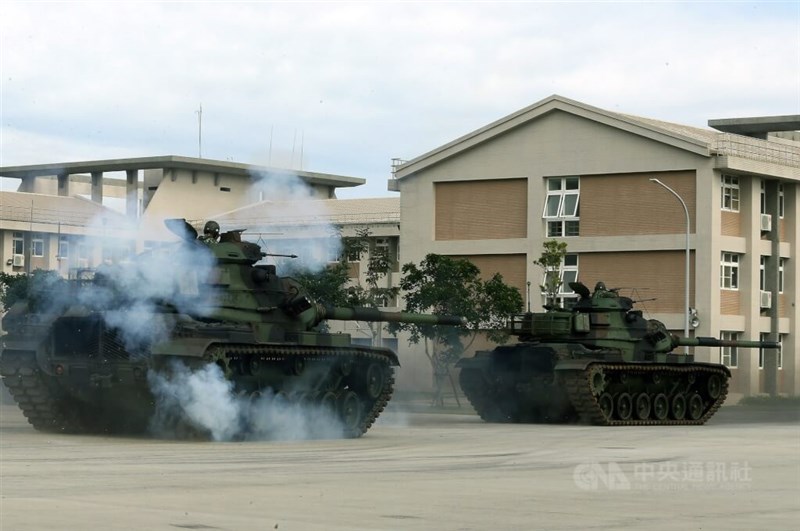
Taipei, Jan. 7 (CNA) Taiwan's military should give priority to protecting the country's crucial infrastructure, maintaining combat readiness, and decentralizing its military command, to build an effective national defense against a possible full-scale invasion by China, a military think tank said in an annual report released recently.
The recommendations were made in the 2023 Report on the Development of the Chinese Communist Party's Politics and Military, which was released online by the Institute for National Defense and Security Research (INDSR) on Jan. 3.
In a chapter titled "People's Liberation Army's amphibious assault capabilities in a potential Taiwan invasion," the report also gives a projection of the first wave of a Chinese attack on Taiwan.
The Chinese People's Liberation Army (PLA) is likely to start with an amphibious assault by about 30,000 troops, including a special operations brigade, transport aviation brigade, and combat support brigade, as well as six airborne brigades, the report says.
After that first amphibious wave, however, the PLA would face difficulties with the terrain in Taiwan and with resupply, according to the writer of that chapter, scholar Ou Si-fu (歐錫富), who heads the INDSR's Division of Chinese Politics, Military and Warfighting Concepts.
"When they land, they will immediately encounter mountains, hills, and towns, which are not conducive to large-scale mechanized troop movements," Ou wrote.
As an alternative, the PLA might switch to airborne assaults in a bid to seize Taiwanese ports, airports and other strategic infrastructure to facilitate rapid deployment of its troops by sea and air, Ou said.
However, attempted landings from the air is an extremely high risk approach, he said, citing the recent example of the ease with which Ukraine has managed to repel Russia's airborne attacks, using a relatively small number of defensive troops.
Taiwan's defense of its seaports and airports, therefore, should be a priority, even if it means sealing them off and destroying runways to prevent landings by the attackers, Ou said.
He also warned that if the PLA decides to launch a full-scale invasion of Taiwan, it will deploy large numbers of missiles in an effort to paralyze Taiwan's command and control systems.
The main defense strategy in that regard should be to decentralize Taiwan's military command, spreading out the decision making among multiple leaders in a complex and rapidly changing system, Ou said.
- Politics
Lai to assume presidency amid geopolitical and domestic challenges
05/18/2024 05:24 PM - Business
Group tour costs to Japan in summer forecast to fall 10% year-on-year
05/18/2024 02:32 PM - Business
Bank of Taiwan's ratio of exposure to China over net worth falls sharply
05/18/2024 01:38 PM - Society
Plum rain front to approach next week: CWA
05/18/2024 12:11 PM - Society
Taiwan headline news
05/18/2024 11:20 AM
